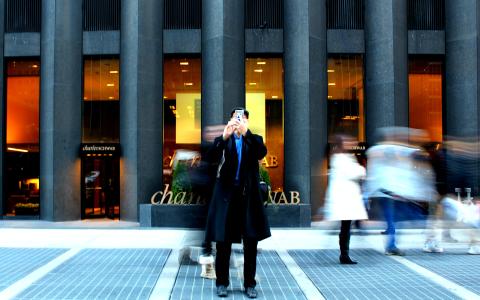
(Reuters) - Charles Schwab's first-quarter profit fell 15% as higher interest on clients' deposits and its borrowings offset gains from a surge in asset management fees, the brokerage said on Thursday.
Rate hikes by the U.S. Federal Reserve have compelled companies like Schwab to increase the interest they pay on deposits - a crucial source of capital that is used to invest in interest-earning assets and give out loans.
Schwab has also taken on debt to bolster its funding, which hit interest revenue further.
Its shares fell 1.2% in trading before the bell.
The Westlake, Texas-based company on average paid 1.35% on deposits in the three months ended March 31, compared with 0.73% last year. The interest rate on its borrowings from the Federal Home Loan Bank was 5.27%, compared with 5.05% a year ago.
Net interest revenue - the difference between interest earned on assets and paid out on liabilities - fell 19% to $2.23 billion.
Asset management and administration fees, earned from managing mutual funds and exchange-traded funds, jumped 21% to $1.35 billion.
Overall, the brokerage reported a profit of $1.36 billion, or 68 cents per share, for the first quarter, compared with $1.6 billion, or 83 cents per share, last year.
Trading revenue, which includes commissions for executing trades, fell 8% to $817 million.
Schwab had a difficult 2023, the most challenging year for the company since the internet bubble burst in 2000, according to CEO Walter Bettinger. The company had to reduce its headcount by 6%, its stock lost more than 17% and clients moved their funds to other high-yielding alternatives.
Reporting by Niket Nishant and Mehnaz Yasmin in Bengaluru
Editing by Devika Syamnath



